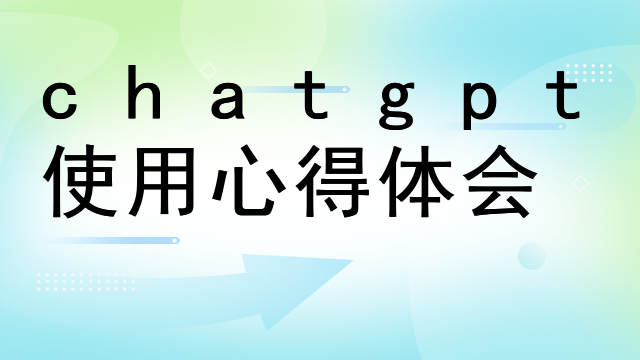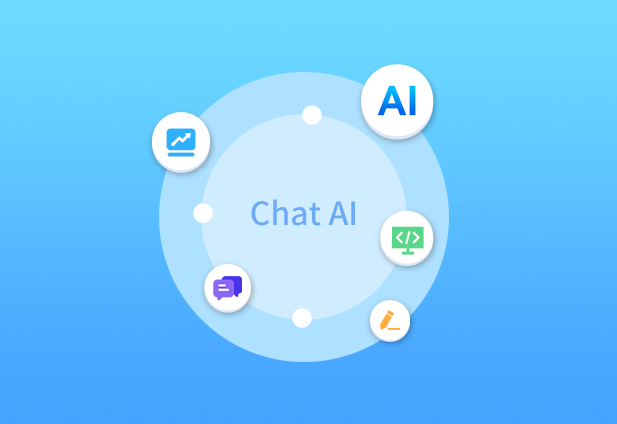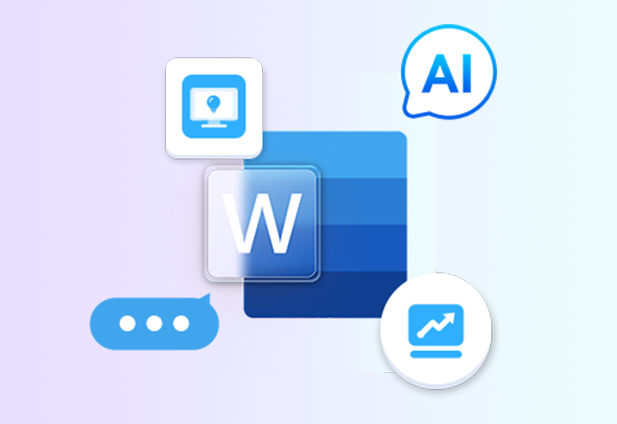Why is chatgpt not open to China
The artificial intelligence language model ChatGPT has attracted widespread attention and discussion worldwide. Some people are puzzled and questioning why ChatGPT did not open up to China. In this article, we will explore the reasons why ChatGPT is not open to China.
One important factor that may be involved in why ChatGPT is not open to China is language and cultural differences. ChatGPT is trained through large-scale datasets, and there are significant differences in grammar, semantics, and expression between Chinese and English. In order to provide more accurate and fluent answers to Chinese users, OpenAI may need to spend a lot of time and resources collecting and processing Chinese data to ensure that ChatGPT performs well in the Chinese environment.
Another key issue that may arise from why ChatGPT is not open to China is regulatory and ethical issues. ChatGPT is a powerful language generation model with realistic expression capabilities that can generate various forms of text. This also brings certain potential risks, such as the generation of misleading information, hate speech, or negative content. Faced with these risks, OpenAI may need to strengthen regulatory mechanisms and review processes before launching the Chinese version to ensure that users are not harmed when using ChatGPT.
Why ChatGPT is not open to China may also involve commercial considerations. Although OpenAI is a non-profit organization, it still needs funding to support its research and development work. In the current situation, OpenAI may focus more on countries and regions with broader markets and smaller language and cultural differences. In this way, they can better meet the needs of users and bring more income to them.
Why ChatGPT is not open to China may also be related to technological challenges. Chinese is a very complex and diverse language, and compared to some other languages, the technical difficulty of processing Chinese may be greater. To ensure the performance and reliability of ChatGPT in Chinese environments, OpenAI may need to invest more time and effort to address these technical issues.
Although ChatGPT has received enthusiastic attention globally, the lack of openness to China may involve multiple factors. Language and cultural differences, regulatory and ethical issues, business considerations, and technological challenges may all have a certain impact on this. We still hope to see ChatGPT open to global users in the future and bring better services and experiences to Chinese users. OpenAI may develop a Chinese version of ChatGPT in the future to achieve wider openness and availability.
Why is chatgpt not open to China
On a global scale, the development of artificial intelligence technology is rapidly changing our lives. And OpenAI's chat AI model GPT-3 (Generic Pre trained Transformer 3) is undoubtedly one of the most advanced and eye-catching at present. Although GPT-3 has been widely used in many countries and regions, why has it not yet been opened to China? Our OpenAI has not completely closed its services to Chinese users. Prior to the release of GPT-3, OpenAI had already collaborated with a partner in China to introduce GPT-2 into the Chinese market. This indicates that OpenAI has a certain understanding of China's market potential and has a precedent for opening up to China. We can analyze the reasons why GPT-3 has not yet been opened to China from several aspects. The first reason for nn is political and legal considerations. The government has strict regulations on the internet and technology, especially for technologies related to language and information processing. As a widely applicable chat AI model, GPT-3 may conflict with local laws and regulations. China's internet censorship system will also pose certain risks to OpenAI when opening up to China. The second reason for NN is the issue of data privacy and security. The training of GPT-3 requires the use of a large amount of data, which involves user privacy and personal information. The management and requirements for foreign companies to handle domestic user data are relatively strict, which may impose higher standards on OpenAI's data collection and use. The Chinese government may also conduct a security review of GPT-3 technology to ensure that it does not pose a potential threat to national security. The third reason for NN is market competition and strategic considerations. China is one of the largest internet markets in the world, with a huge user base and entrepreneurial environment. OpenAI may view China as a potential strategic market and hope to open up after conducting more in-depth research and understanding of China. OpenAI also needs to consider the competition with local Chinese companies in the field of artificial intelligence, which may have a certain impact on its open strategy. Although GPT-3 has not yet been opened to China, we can foresee that with the passage of time and further development of technology and market, OpenAI may gradually open up the Chinese market. OpenAI recently announced that it has partnered with Microsoft to develop new customized AI solutions in the coming years and provide support to users in China and other regions. This indicates OpenAI's importance and willingness to open up the Chinese market. We can expect OpenAI to gradually open GPT-3 to China while respecting laws and regulations, protecting user data security and privacy. This will bring new opportunities for China's technological innovation and artificial intelligence applications, promoting technological progress and social development.
Is chatgpt open to China
ChatGPT is a dialogue generation model based on artificial intelligence technology, developed by OpenAI. This model has attracted widespread attention worldwide due to its excellent dialogue generation ability. Many people are curious, is ChatGPT open to China? In this article, we will explore this issue. Let's take a look at the basic situation of ChatGPT. ChatGPT is a language model trained through large-scale self supervised learning, using the Transformer architecture. It can learn the laws and structures of language by reading a large amount of text data, and generate responses that are consistent with input. ChatGPT does not truly understand the meaning of input, only generates conversations based on statistical probability. Since ChatGPT is just a model, OpenAI can decide whether to open it up to global users or impose restrictions. So far, OpenAI has released several versions of ChatGPT for public evaluation and testing. Although the initial version could only be used by a limited number of users, OpenAI gradually expanded the user range of ChatGPT. Users can try ChatGPT online, but they need to obtain access permissions through the queuing system. The nnChatGPT has also sparked widespread interest and discussion. Although OpenAI did not explicitly indicate whether to open ChatGPT to Chinese users, many Chinese users have tried this model through agents or scientific Internet access. They evaluated the training data and generation quality of ChatGPT and shared their experiences. The formal opening up to Chinese users still needs to wait for further news and decisions. For OpenAI, open ChatGPT has had a positive impact on global users. User feedback and testing can help improve the model and enhance the ability to generate conversations. This open approach can also allow more people to understand and experience ChatGPT, and provide more possibilities for its future development. Due to issues related to natural language processing and information security, the scale and scope of openness need to be carefully considered. The potential limitations and risks of nn also require our attention. For an open model on a global scale, the issue of improper regulation and filtering of content is obvious. OpenAI also explicitly stated that they will take measures to prevent model abuse. Due to ChatGPT only generating conversations based on statistical probability, there is a risk of misleading or misunderstood answers. The use of ChatGPT requires users to have appropriate judgment to avoid misleading or having adverse effects. Currently, ChatGPT is still in the trial stage of opening up to China, and OpenAI has not yet clearly stated its plans for opening up to Chinese users. Chinese users have started contacting and testing ChatGPT through various means, and have provided feedback and opinions to OpenAI. We look forward to OpenAI actively collaborating with Chinese users, exploring broader user openness and cooperation opportunities, in order to promote the development of ChatGPT and make greater contributions to the innovation and application of language generation technology.
When will chatgpt open to China
Artificial intelligence technology has made significant progress, and ChatGPT, as a language model, has attracted widespread attention. As a model trained in an English environment, ChatGPT often encounters issues such as inaccurate understanding and incomplete answers when dealing with Chinese, which has also caused dissatisfaction among many Chinese users. When ChatGPT can open up to China has become a common concern for everyone. We need to understand why ChatGPT has problems processing Chinese. As a natural language processing model, ChatGPT is obtained by training a large number of English texts. During the training process, the model learned the grammar, vocabulary, and contextual relationships of the English language, but it did not have sufficient understanding of the different language structures of Chinese. When dealing with Chinese, ChatGPT often experiences misunderstandings or inaccurate answers. It is gratifying to note that OpenAI has recognized this issue and stated their commitment to improving ChatGPT's performance in handling non English languages. They plan to launch more language datasets to improve the model's understanding and application capabilities for other languages. For the vast number of Chinese users, this is undoubtedly good news, indicating that ChatGPT's opening up to China is expected to accelerate. To truly open up to China, in addition to improving Chinese processing capabilities, nnChatGPT also needs to consider a series of factors. The technical limitations of the model itself need to be overcome. The current ChatGPT model still has some problems, such as being prone to misleading answers and lacking common sense judgments. These issues need to be addressed while improving the model in order to provide better experiences for Chinese users. NN Open ChatGPT for China needs to consider language and cultural differences. Chinese is a special language with unique expressions and cultural backgrounds. ChatGPT needs to consider these particularities in its processing of Chinese in order to better adapt to the needs of Chinese users. The handling of sensitive topics is also a matter that needs to be treated with caution to avoid model abuse or adverse effects. The opening of ChatGPT by NN requires compliance with relevant laws and regulations in China. The development of artificial intelligence technology must be carried out within the legal framework to ensure the legitimate rights and interests of users and social stability. When opening ChatGPT to China, OpenAI needs to comply with relevant Chinese laws and regulations to ensure the legal compliance of the technology. Although ChatGPT currently has some issues in processing Chinese, we have reason to believe that with the progress of technology and the continuous efforts of OpenAI, these issues will be resolved. When ChatGPT will be opened to China depends on multiple factors such as model improvement, full understanding of Chinese characteristics, and compliance with laws and regulations. We believe that in the near future, we will be able to enjoy even better ChatGPT services to meet our various needs.
Why is chatgpt not open to China
Why is ChatGPT not open to China? Artificial intelligence technology is becoming increasingly mature, and various AI products are beginning to enter every aspect of people's lives. One of the highly anticipated products is OpenAI's ChatGPT, which is an intelligent robot that can engage in natural conversations with humans. We cannot help but ask why ChatGPT is not open to China? Before exploring this issue, let's first understand what ChatGPT is. ChatGPT is a language model developed by OpenAI company, which uses machine learning and neural network technology to predict future language content based on previous inputs. This allows ChatGPT to communicate like a real conversation partner, answer user questions, and provide an interactive experience. Although ChatGPT technology has attracted widespread attention and interest worldwide, OpenAI has not opened it up to Chinese users. The main reasons for this are as follows. NN technology limitations are an important factor. The training data of ChatGPT mainly comes from English texts, including a large number of internet articles and books. Due to many differences between the Chinese internet environment and the international community, including language expression, cultural background, etc., before applying ChatGPT to the Chinese market, it is necessary to localize the training data to ensure that it can meet the needs of Chinese users. This requires a lot of time and resources, so OpenAI may need more time to prepare and adapt to the Chinese market. Policy and regulatory issues are also one of the reasons. China has strict internet regulatory policies and certain management requirements for the application of emerging technologies. Considering that ChatGPT is a potentially risky technology, OpenAI may need to comply with relevant Chinese regulations and collaborate with the government to ensure its compliance and security in the Chinese market. This requires consultation and communication among all parties to meet relevant requirements. Business considerations may also be one of the reasons. As a company, OpenAI must conduct strategic planning at the commercial level to ensure its own development and interests. Before considering opening ChatGPT to Chinese users, OpenAI may need to conduct market research and business model design to adapt to the needs and competitive environment of the Chinese market. This requires investment of time and resources, so OpenAI may require more preparation time. Although ChatGPT is not currently open to China, we can see the opportunities and challenges within it. As one of the world's largest internet markets, China has enormous potential and demand. If OpenAI can successfully solve the above problems and open ChatGPT to Chinese users, it will bring new opportunities for the development of AI technology and artificial intelligence industry in China. The main reasons why nnChatGPT is not open to China are technological limitations, policy and regulatory issues, and commercial considerations. Although ChatGPT has not yet entered the Chinese market, we hope that OpenAI can find ways to solve the problem in the future and open it up to Chinese users to promote the development and application of artificial intelligence technology.























